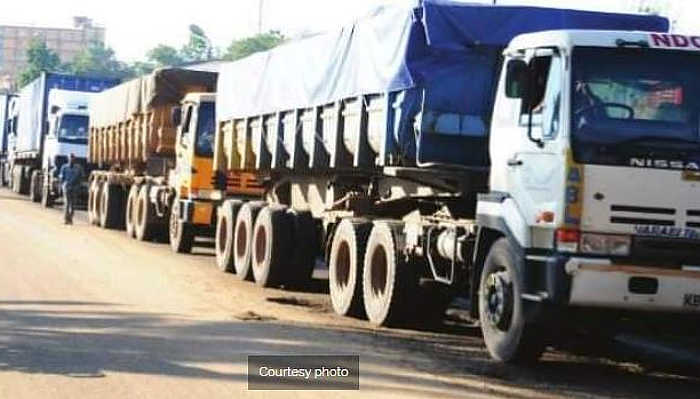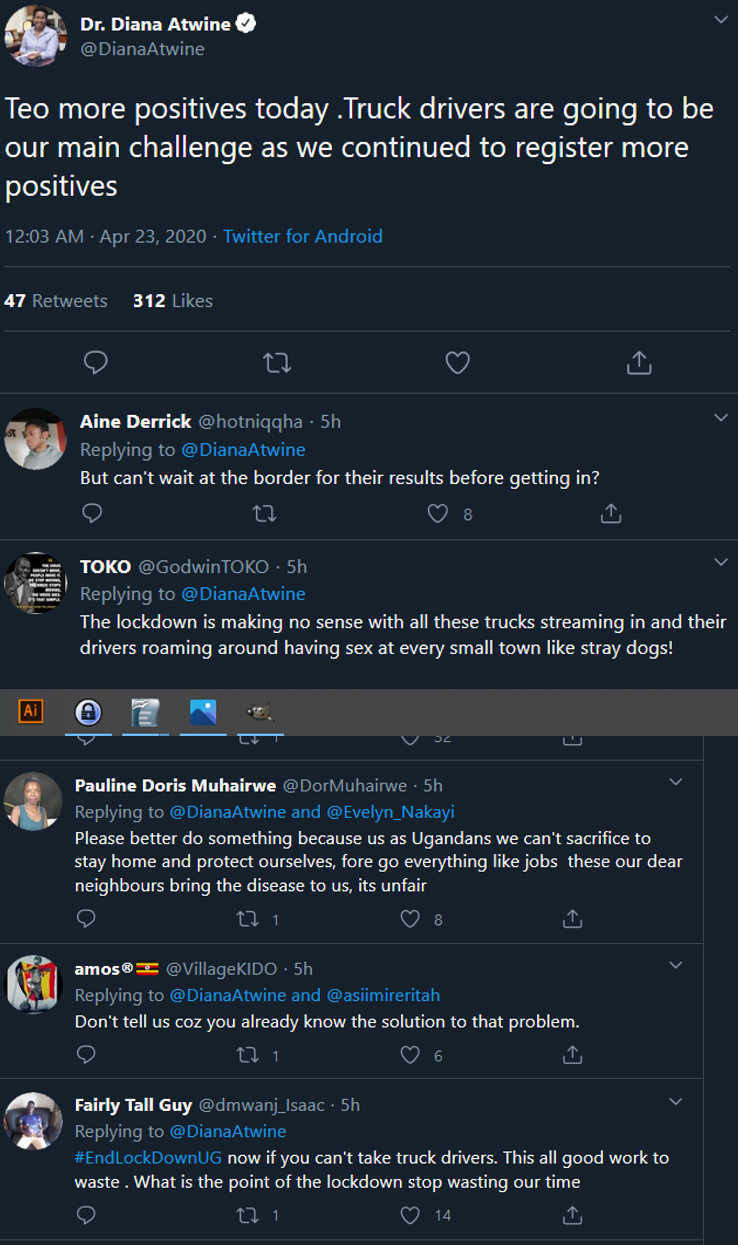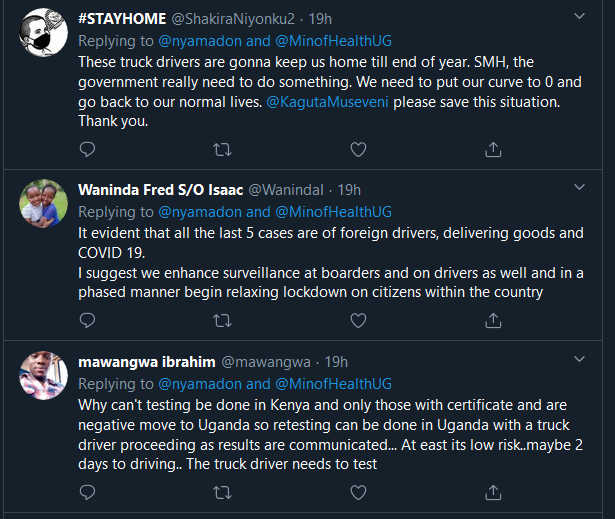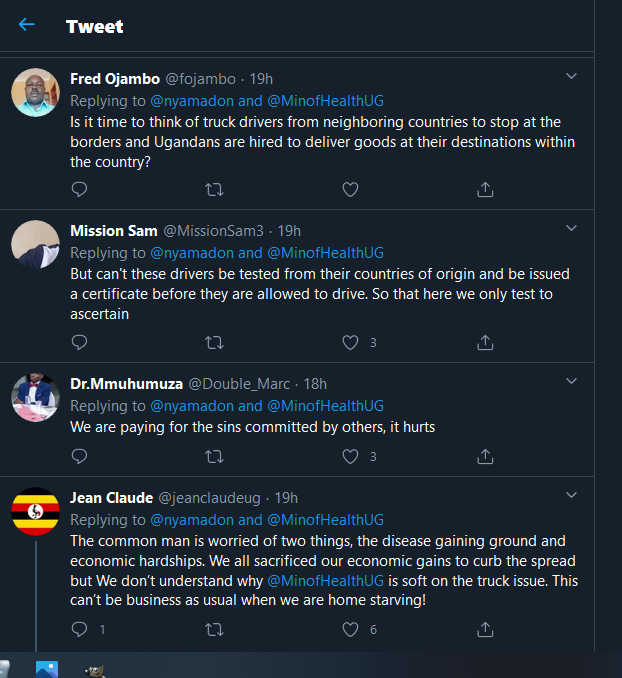Health
Truck drivers are ‘starving us’: As anger mounts over rise in Uganda COVID-19 cases, EAC unity comes under test

Truck drivers are now the biggest risk of infection from Coronavirus in Uganda
Uganda’s Ministry of Health yesterday April 22, recorded two new cases of COVID-19 from nearly 1,300 tests that were taken from among suspected cases, majority of whom were truck drivers.
The Ministry said two Tanzanian men, both truck drivers who arrived at Mutukula border on separate days, had tested positive to COVID-19. The confirmation of results has taken Uganda’s tally of COVID-19 cases to 63, with all the latest cases (7) now being of truck drivers.
And with recent changes to the government’s policy on handling of cases, in respect to WHO guidelines, Uganda has to shoulder the burden of treating the truck drivers. The two new cases are now being treated at Mulago and Entebbe hospitals.
The rise in Uganda’s COVID-19 cases now being attributed mainly to truck drivers, is driving many people angry, with many blaming their continued suffering to the apparent soft approach by the Uganda government towards the truck drivers as well as their silence on lax measures in the sister countries of Kenya and Tanzania where the truck drivers originate.
This comes as Uganda announced that it had discharged 10 more COVID-19 patients, taking the total number of recovered patients to 45. This means that the country now has 11 nationals still under treatment.
Many on social media are now blaming the continued enforcement of the painful quarantine measures on the government for failing to take action against the ‘devil’ they know.

Angry reactions to Dr. Diana Atwine, Permanent Secretary MOH’s news about the truck drivers testing positive
Others have called on President Yoweri Museveni to intervene and do something about the situation.
The rise in cases of COVID-19 among truck drivers also reflects the rise in the number of cases of patients in their mother countries. During the last three days, the government of Tanzania has recorded over 80 new cases of the disease.

Some reactions to Don Wanyama, President Museveni’s Senior Press Secretary’s report about new COVID-19 cases
As we reported in our recent article, the rise in cases of COVID-19 is largely due to lax measures adopted by the governments in Kenya and Tanzania.
For example, in Kenya, the government has left enforcement of social distancing requirements to individual consciousness, stopping at telling people people that that power to stop the disease lies in their hands.
In Tanzania, President John Pombe Magufuli has refused to announce any emergency measures consistent with WHO guidelines on COVID-19 including putting in place aggressive steps of ISOLATING, TESTING, TRACKING and TREATING COVID-19 patients.
With the rise in new cases as seen among truck drivers, there is a real possibility of the dreaded COMMUNITY spread of COVID-19, a situation where it becomes almost impossible to track people and isolate them as the disease is so widespread.
Given the economic and social integration among the East Africa countries involving heavy flow of traffic for persons and goods, the situation in Kenya and Tanzania is likely to add tension and resentment to the already fragile sense of unity among the East African member states, more so among ordinary people.
President Museveni, a strong advocate of integration, maintains that movement of cargo – the symbol of trade, has to be allowed to continue. But his commitment to maintaining this bond is increasingly coming under test, especially among Ugandans, especially as the country nears the election period.

Some reactions to Don Wanyama, President Museveni’s Senior Press Secretary’s report about new COVID-19 cases
Comments


























